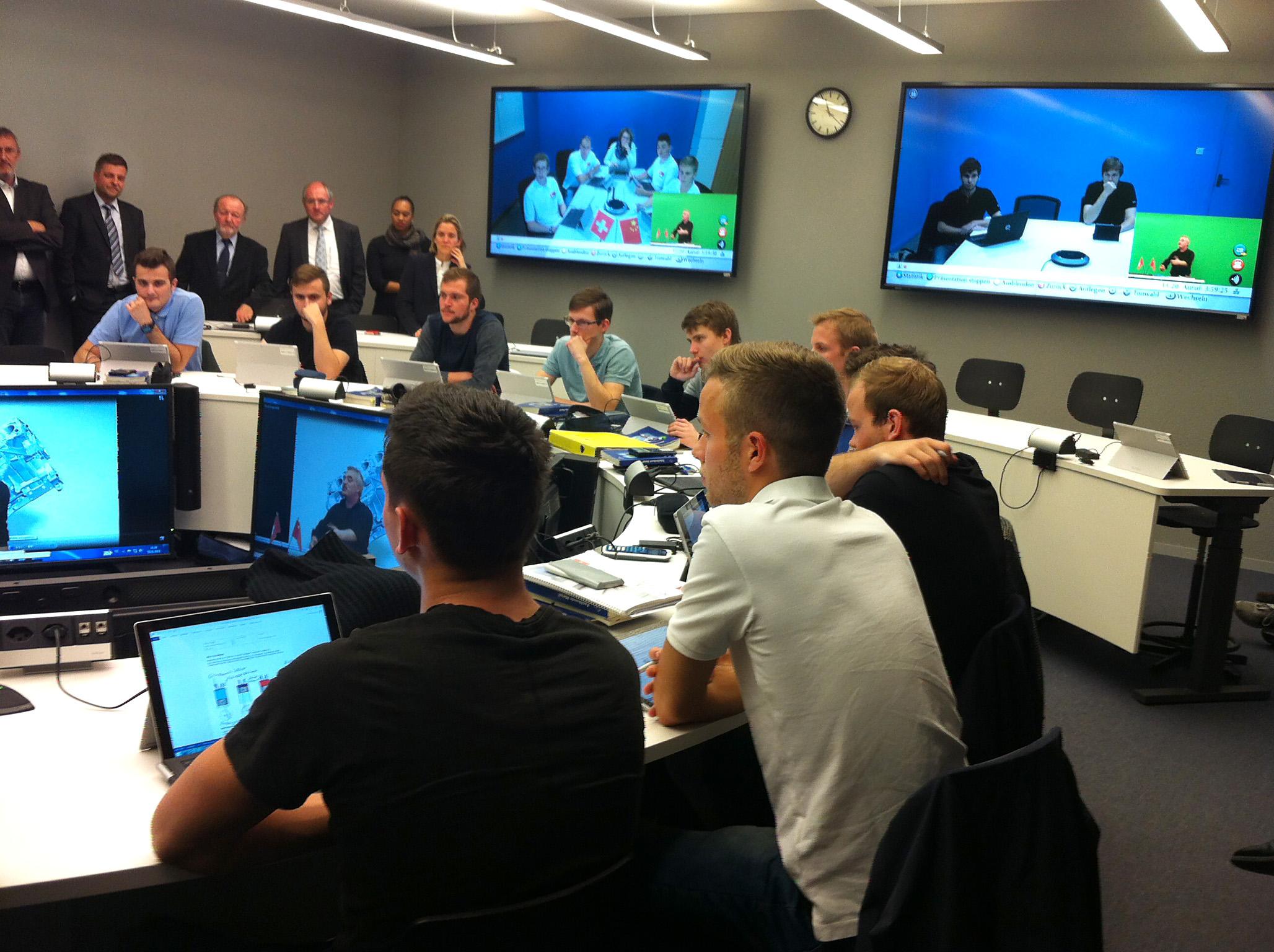The American Dream remains within reach — in Switzerland
The American Dream is just that – a dream – for many young people in the US today.
As some presidential candidates have noted, particularly as they try to court younger voters, college-loan indebtedness and a skills gap are blocking many young Americans from reaching the middle class.

Students are graduating with massive debts, parents can’t get their adult kids up and out of their basements, and businesses are frustrated about the skill sets of the workforce coming out of today’s schools.
While the presidential debate focuses on how to handle student-loan indebtedness and whether college could be offered for free, another model –which is working well in Switzerland – should be considered.
Students in Switzerland have a much easier path to the middle class. Yes, college is nearly free, and many would argue that model could be hard to duplicate in the U.S. But another big factor is that small nation’s dependence on business apprenticeships as an alternative to a four-year college degree.
Notably, the program is not modeled after the American-style high school trades or community college curriculums to start a blue-collar job in, say, welding or plumbing, although classes and careers in those fields can be selected. Instead, it’s a fast-track into prestigious, high-paying careers in areas such as technology – everything from graphics software, video-game design and advanced computer programming. They are white-collar jobs.
These apprenticeships also allow entry into banking, everything from analyzing stocks to wealth management.
In Switzerland, the apprenticeship model is a popular option: About two-thirds of 15-year-old students elect to spend two to four years in Vocational Education and Training (VET).
Students choose from more than 250 apprenticeship programs, creating an educational experience tailored to their interests and goals. They spend two days a week in a VET classroom and three days a week working at one of some 58,000 businesses in health care and retail, banking and engineering, as well as technology and other fields.
Qualified apprentices, at the end of their training, receive a VET diploma, a signal of preparedness universally recognized by Swiss employers. Most move into jobs that average about $50,000 a year in salary to start. Roughly 30% of them go on to receive bachelor’s degrees or other advanced training, which increase their earnings power into the six figures.
Need I ask: How many 18-year-old Americans would like that kind of start in life? Or how many businesses would like new hires who’ve been pre-trained and transitioned into the company?
Some 71% of all young people in Switzerland expect to graduate from an apprenticeship program. The economic results: The unemployment rate for Swiss youth is less than 3%. In the U.S., the figure is about 12%. The trade-off: Businesses invest more than $5 billion a year in the program for instructors, materials as well as apprentices’ salaries.
Several Swiss corporations with operations in my home state of Colorado, Novartis, Pilatus Aircraft and Mikron Group, are experimenting with this system, as is Nestle, Credit Suisse, Zurich Insurance Group and several other Swiss-based companies in other states.
Philip Kalin, the chief executive officer of Pinnacol Assurance, in Denver, recently told me he would love to get involved with setting up the Swiss model.
“Not only will it help address issues of building a pipeline of workers,” he said, “but, more fundamentally, it can help create a pathway to solid middle-class jobs.”
Another enthusiastic business leader, Donna Lynne, group president of Kaiser Permanente Health Plan and Kaiser Foundation Hospitals, added that the Swiss system has “de-stigmatized young people who choose a post-secondary career versus going to college.”
Lynne also noted that the program could help deflate dropout rates, a huge problem in many states today.
“Since young people get to build job skills and get paid while going to school part-time, they are more likely to stay in school,” she said.
One obstacle to implementing this system in the States: a disturbing disconnect between what education leaders and business executives believe. Only 11% of business leaders, according to a 2013 Lumina Foundation/Gallup poll, strongly agree that graduating college students have the skills and competencies that their businesses need; 13% of the general public agree that students are well-prepared for success for the working world. Meanwhile, among chief academic officers at colleges and universities, 98% felt that students were very or well-prepared for work.
The business sector also needs to be challenged. For some version of the Swiss system to succeed broadly in the U.S., corporations must change their role from being consumers of educated youth to producers of educated young people.
Businesses will have to view training as a social responsibility and long-term economic necessity, too. Most training companies realize positive returns on their financial investments as they benefit from both increased productivity and the younger generation’s new ideas and high energy.
Other resets also would be required. Parents and local governments would have to embrace private enterprise in the education sphere.
More than anything, perhaps, mindsets must change. In particular, as Lynne noted, attitudes about the status, value and what encompasses “the trades” have to be rethought; perhaps we should call our apprentices “residencies.” After all, is a programmer’s labor much different from a mechanic’s nowadays? What job doesn’t involve computers or digital-technology competencies?
America, if we don’t evolve in this direction, the American Dream will only truly be a reality for the youth in places outside of the United States.
This article was originally published by MarketWatch.External link
The views expressed in this article are solely those of the author, and do not necessarily reflect the views of swissinfo.ch.
Opinion series
swissinfo.ch publishes op-ed articles by contributors writing on a wide range of topics – Swiss issues or those that impact Switzerland. The selection of articles presents a diversity of opinions designed to enrich the debate on the issues discussed.

In compliance with the JTI standards
More: SWI swissinfo.ch certified by the Journalism Trust Initiative












You can find an overview of ongoing debates with our journalists here . Please join us!
If you want to start a conversation about a topic raised in this article or want to report factual errors, email us at english@swissinfo.ch.